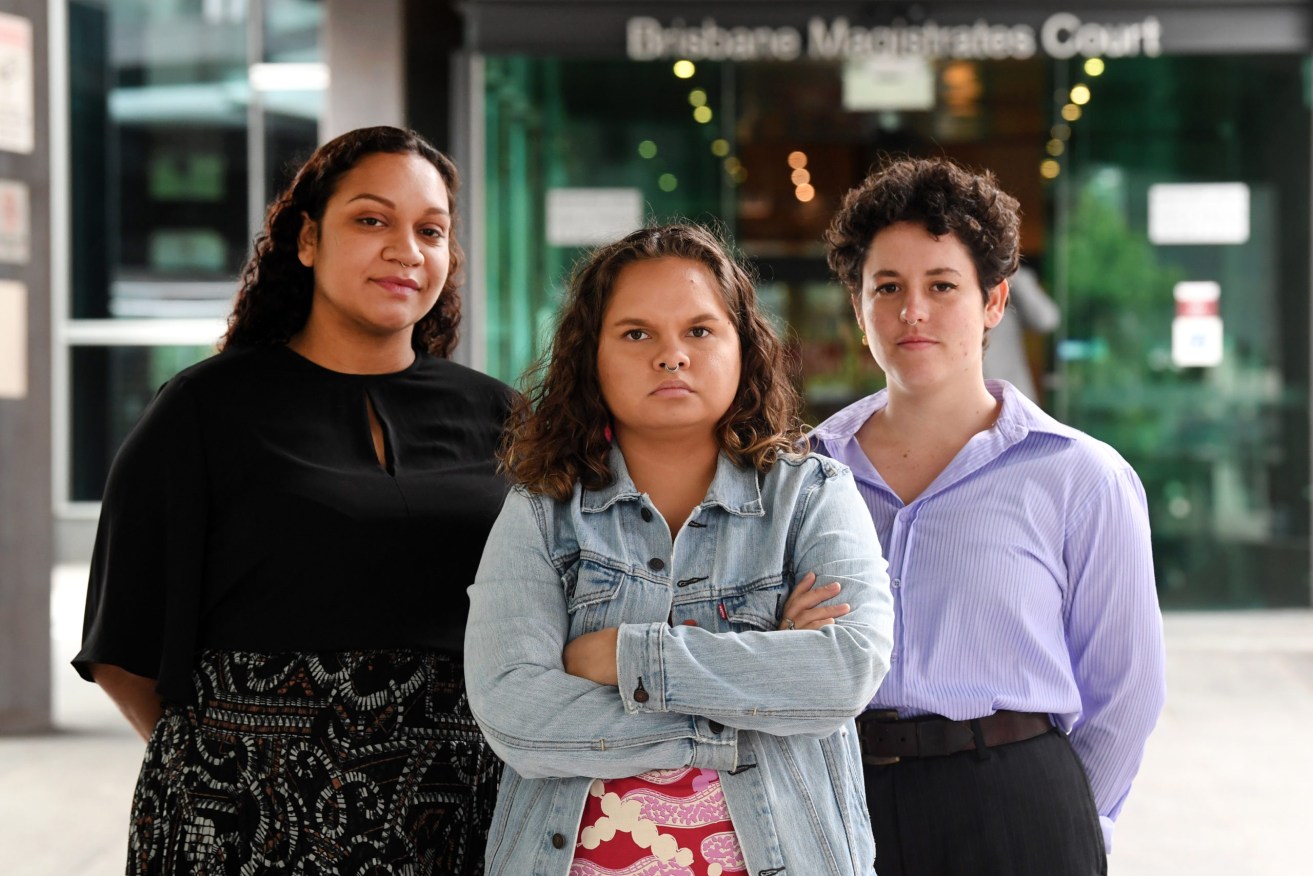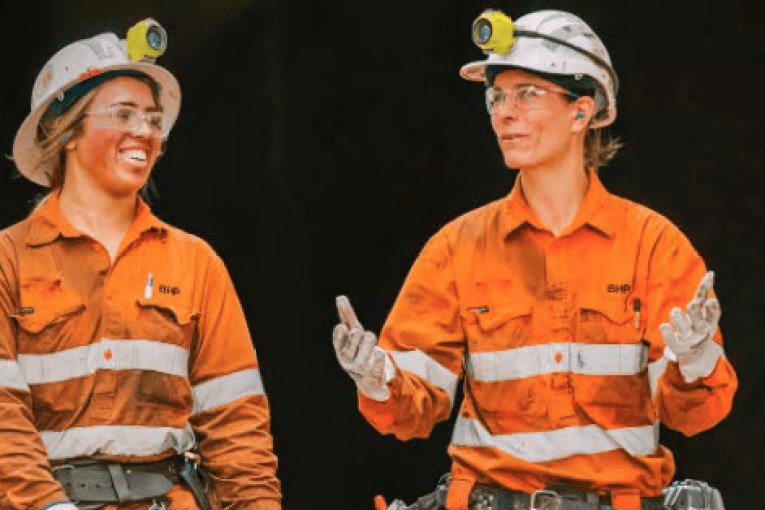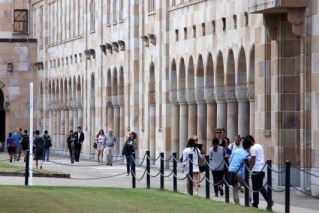Fresh Hope: How three teen activists tore down legal case of a Queensland billionaire
The coal sector’s very survival in Queensland has been dealt some serious blows in recent times but the Land Court’s judgement on Clive Palmer’s Alpha project in the Galilee Basin is a huge wake up call.


(L-R) Murrawah Johnson, Serena Thompson and Monique Jeffs from Youth Verdict, who successfully challenged Clive Palmer’s proposed Galilee Coal Project, are seen outside the Queensland Land Court in Brisbane in April. Youth Verdict and The Bimblebox Alliance’s human rights, nature and climate legal challenge to Clive Palmer’s proposed Galilee Coal Project was decided last week. (AAP Image/Darren England) NO ARCHIVING
It’s not the first time the Land Court has done this. A few years ago, it rejected New Hope’s plans for the expansion of the Acland coal mine and that created legal and political turmoil that rolled through two elections before New Hope won.
Maybe this latest finding should have been expected. After all, activists have been running cases against coal in the Land Court since the Xstrdo ata Wandoan case in the 1990s and have become increasingly sophisticated and legally savvy. This won’t be their last win.
The recommendation by Land Court president Fleur Kingham against Palmer’s Alpha mine in the Galilee Basin is extraordinary and its impact potentially profound for the coal sector, if not legally then certainly administratively.
Significantly, in her judgement on Palmer’s Alpha project, Kingham said the ruling was not about whether any new coal mines should be approved.
“It is about whether this coal mine should be approved on its merits,’’ Kingham said.
So Kingham was trying to point out that if the evidence changed, so too would the court’s findings.
Make of that what you will, but it didn’t seem like applause for the case run by Palmer.
There were some other big findings in her recommendations.
Firstly, she completely rejected the substitution argument which holds that Alpha’s coal was less polluting than, say that of Indonesia’s. This has been a point raised by both sides of politics as well as business and is like putting lipstick on a pig.
“I reject that submission, as well as its submissions that there will be a beneficial climate outcome if the project is approved and an adverse climate outcome if it is not. Although the project coal might displace other supply in its market, that is most likely to be other high rank coal, with similar greenhouse gas emissions,’’ Kingham said.
Top marks for finally putting that one to rest.
She also said granting permission to mine coal can’t be logically separated from the coal being used to generate electricity and, as a matter of law, she said emissions from that coal had to be taken into account in the principles of ecological sustainable development.
“Wherever the coal is burnt the emissions will contribute to environmental harm, including in Queensland,’’ she said.
There goes another shibboleth.
“This project alone is not the difference between acceptable and unacceptable climate change. But 1.58 gigatonnes of CO2 is a meaningful contribution to the remaining carbon budget to meet the long-term temperature goal of the Paris Agreement.’’
Although Kingham said her recommendations were restricted to Alpha and not all coal mines, it hard to see it otherwise.
And although it is likely to be appealed, environmental lawyers are fairly confident about the soundness of the recommendation from Kingham and its ability to survive appeals to a higher court.
The human rights aspect of the case were also significant.
“For the owners of Bimblebox (nature refuge), that is their right to property and to privacy and home. In relation to climate change, I have found that the following rights of certain groups of people in Queensland would be limited: the right to life, the cultural rights of First Nations peoples, the rights of children, the right to property and to privacy and home, and the right to enjoy human rights equally. Doing the best I can to assess the nature and extent of the limit due to the project, I have decided the limit is not demonstrably justified.’’
That should not surprise anyone. Back in 2021, Kingham gave a speech in which she adopted a maritime anology:
“Rights-based advocacy has already set sail in the Land Court, and this new punt will only gather speed as it travels downstream. But it is not only the Land Court that will be drawn into the main channel. Rights-based advocacy is emerging in other courts too.’’
Coal companies would be looking at the Kingham’s rejection as another example of the problem the mining industry has with the Land Court, or more precisely, how difficult it has become to do business in Queensland.












